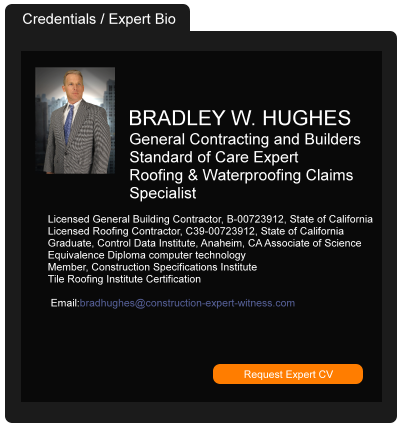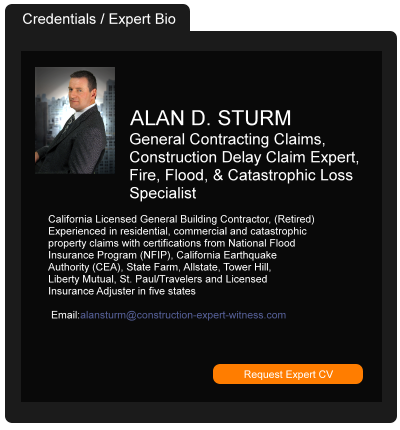New FAR Rule Mandates the Use of PLAs on Large Construction Projects
October 10, 2022 —
Reggie Jones - ConsensusDocsThe Federal Acquisition Regulatory Council recently published a proposed ruled that, once implemented, will require the use of project labor agreements (PLAs) on federal construction projects with a contract value of $35 million or greater. The proposed rule revokes President Obama’s Executive Order 13502 and implements an Executive Order 14063 (E.O. 14063) issued on February 9, 2022. E.O. 14063 addresses the use of PLAs in the government contracts. Under the current Federal Acquisition Regulation (FAR), the use of PLAs on “large-scale construction projects” is discretionary. The new rule proposed by the Department of Defense (DOD), General Services Administration (GSA), and National Aeronautics and Space Administration (NASA) revises the FAR contract clauses making the use of PLAs mandatory.
Under the proposed rule, contractors performing “large-scale construction projects” will be required to “negotiate or become a party to a [PLA] with one or more appropriate labor organizations.” FAR 52.222-33. A PLA is in essence a collective bargaining agreement between a local trade union and contractor that governs employment terms, including wages and benefits, for union and non-union workers. Although the PLA mandate only applies to large-scale construction projects with the contract value of $35 million and more, under the proposed rule, agencies have the option to include the PLA requirement for construction projects that are under the $35 million threshold. The proposed rule also sets out a flow-down requirement, which means that subcontractors working on a large-scale project must likewise be familiar with and comply with terms of the PLA negotiated by a prime contractor.
Read the court decisionRead the full story...Reprinted courtesy of
Reggie Jones, Fox Rothschild LLP (ConsensusDocs)Mr. Jones may be contacted at
rjones@foxrothschild.com
Eleventh Circuit’s Noteworthy Discussion on Bad Faith Insurance Claims
November 01, 2021 —
David Adelstein - Florida Construction Legal UpdatesThe Eleventh Circuit Court of Appeal’s opinion in Pelaez v. Government Employees Insurance Company, 2021 WL 4258821 (11th Cir. 2021) is a non-construction case that discusses the standard for pursuing a bad faith claim against an insurer. This case dealt with an automobile accident. While the facts of the case are interesting and will be discussed, the takeaway is the Eleventh Circuit’s noteworthy discussion on the standard for bad faith claims and how they should be evaluated. This discussion is included below–with citations–because while the term “bad faith” is oftentimes thrown around when it comes to insurance carriers, there is indeed an evaluative standard that is applied to determine whether an insurance carrier acted in bad faith.
In Pelaez, a high school student driving a car crashed with a motorcycle. The motorcycle driver was seriously injured and airlifted to the hospital. The accident was reported to the automobile liability insurer of the driver of the car. The insurer through its investigation initially believed the motorcycle driver was contributory negligent. Eleven days after the crash, after learning additional information, the insurer tendered its bodily injury policy limits of $50,00 to the motorcycle driver even though it never received a settlement demand. The insurer sent a tender package to the motorcycle driver’s lawyer that included a $50,000 check for the bodily injury claim and a proposed release. The accompanying letter told the attorney to contact the insurer with any questions about the release and to edit the proposed release with suggested changes. The insurer also wanted to inspect the motorcycle in furtherance of adjusting the property damage claim which also had a policy limit of $50,000. A location of where the motorcycle could be inspected was never provided.
Read the court decisionRead the full story...Reprinted courtesy of
David Adelstein, Kirwin Norris, P.A.Mr. Adelstein may be contacted at
dma@kirwinnorris.com
There's No Such Thing as a Free House
April 01, 2015 —
Megan McArdle – BloombergShould people be able to get a free house by refusing to pay their mortgage?
That's the question Florida has to answer. The housing crisis is over, and the housing market is healing itself, though slowly in some places. But a backlog of foreclosures still remains ... and it has been going on so long that some homes are now past the statute of limitations for collecting debt. Lawyers for the homeowners are arguing that this means they get to keep the house. Lawyers for the banks are, unsurprisingly, arguing that each month they fail to pay the mortgage payment starts the statutory clock anew.
Both arguments create problems if the courts endorse them. If failing to pay really restarted the clock every month, then there wouldn't be a statute of limitations on debt -- creditors could just keep sending you bills forever and dun you right up to the edge of your grave. There's a very good reason that we have statutes of limitations on most crimes and most debts: The law recognizes that our interests in justice and contract rights must be balanced against other considerations. People need to be able to plan their lives without decades-old problems coming back to bite them, and also, as cases age, they get harder and harder to prove as witnesses die, evidence gets lost and memories fade.
Read the court decisionRead the full story...Reprinted courtesy of
Megan McArdle, BloombergMs. McArdle may be contacted at
mmcardle3@bloomberg.net
Three Kahana Feld Attorneys Recognized in The Best Lawyers in America® 2025
September 23, 2024 —
Linda Carter - Kahana FeldNEW YORK – Sep. 4, 2025 – Kahana Feld is pleased to announce that Eric Bernhardt and Kraig Kilger were included in the 2025 edition of The Best Lawyers in America® and Alice A. Trueman was included in Best Lawyers: Ones to Watch® in America.
Eric Bernhardt was awarded for his work in Litigation – Insurance. Bernhardt is a partner in the firm’s Buffalo, NY office, admitted in New York and California, and a member of Kahana Feld’s national appellate practice group. His practice encompasses multiple types of litigation including the defense of New York Labor Law, construction, product liability, trucking, professional and medical malpractice, automobile accident, and general negligence cases.
Kraig Kilger was recognized in the areas of Bankruptcy and Creditor Debtor Rights/Insolvency and Reorganization Law, Litigation – Real Estate, and Real Estate Law. Kilger is a partner in Kahana Feld’s Irvine, CA office. His experience spans all phases of residential and commercial real estate development, including acquisitions, financing, planning, entitlement, development, construction, leasing, and sales.
Alice Trueman was recognized by Best Lawyers: Ones to Watch in the field of Personal Injury Litigation – Defendants. She is a litigation attorney in the firm’s Buffalo, NY office who focuses her practice on general liability defense and insurance defense. Ones to Watch recipients typically have been in practice for 5-9 years and are selected for their outstanding professional excellence in private practice.
Read the court decisionRead the full story...Reprinted courtesy of
Linda Carter, Kahana FeldMs. Carter may be contacted at
lcarter@kahanafeld.com
Insurance Policy to Protect Hawaii's Coral Reefs
December 26, 2022 —
Tred R. Eyerly - Insurance Law HawaiiThe New York Times recently reported on an insurance policy issued to the non-profit Nature Conservancy to protect coral reefs in Hawaii. Cihistopher Flavelle, Catrin Einhorn, In a First, Nonprofit Buys Insurance for Hawaii's Threatened Coral Reefs, N.Y. Times, Nov. 21, 2022.
If damaged by a storm, coral reefs need immediate attention if they are going to recover. The Nature Conservancy plans a four step process to save damaged reefs:
- Purchase a policy for all 400,000 acres of coral reefs surrounding the Hawaii island.
- If reefs are sufficiently damaged by a storm the policy will pay out within two weeks.
- The Nature Conservancy will ask the State of Hawaii, owner of the reefs, for a permit to repair the storm damage.
- Finally, if the state officials issue the permit, the insurance proceeds will pay teams of divers to repair the damage. Crews will have about six weeks before coral begins to die.
Read the court decisionRead the full story...Reprinted courtesy of
Tred R. Eyerly, Damon Key Leong Kupchak HastertMr. Eyerly may be contacted at
te@hawaiilawyer.com
Colorado Court of Appeals to Rule on Arbitrability of an HOA's Construction Defect Claims
November 20, 2013 —
W. Berkeley Mann, Jr. — Higgins, Hopkins, McLain & Roswell, LLCOn October 24, 2013 the Colorado Court of Appeals granted a rare interlocutory appeal in a multi-family residential construction defect case. The Court of Appeals accepted the case ofTriple Crown at Observatory Village Association, Inc. v. Village Homes of Colorado, Inc.(2013 WL 5761028) as an interlocutory appeal after the parties briefed and obtained rulings from the trial court that compelled the case to binding arbitration in lieu of a jury trial on all issues. The appellate decision of October 24, 2013 did not decide the merits of the case, but discussed the issues to be decided in the eventual merits decision. The significance of the issues presented and the interlocutory nature of this appeal both make this case worth watching for further appellate proceedings.
The core issue in this appeal was the applicability of Colorado’s Uniform Arbitration Act (C.R.S. § 13-22-201, et seq.), based on recorded Declarations filed by the developer. The Declarations mandated that the HOA arbitrate any design/construction disputes with the developer. Immediately prior to suit, the Association sought to amend the Declarations in order to avoid the arbitration process for these claims. The interlocutory appellate issues resulted from the trial court’s order compelling the arbitration over the objections of the Association.
The trial court’s decision was based on a reading of the Colorado Revised Non-Profit Corporation Act (“CRNPC,” at C.R.S. § 7-127-107), which was found applicable to the Association.
Read the court decisionRead the full story...Reprinted courtesy of
W. Berkeley Mann, Jr.W. Berkeley Mann, Jr. can be contacted at
mann@hhmrlaw.com
Nevada Insureds Can Rely on Extrinsic Facts to Show that An Insurer Owes a Duty to Defend
November 15, 2021 —
Sarah J. Odia & Scott S. Thomas - Payne & FearsOn Oct. 28, 2021, the Nevada Supreme Court in Zurich American Insurance Company v.. Ironshore Specialty Insurance Company, 137 Nev. Adv. Op. 66, held that an insured can rely on extrinsic facts to show that an insurer has a duty to defend the insured, as long as the facts were available to the insurer at the time the insured tendered the claim. The court also held that an insured has the burden of proving that an exception to an exclusion in an insurance policy applies to create a duty to defend.
In Zurich, Ironshore refused to defend to its insured against multiple property damage claims arising out of construction defects, claiming that its policies’ continuing and progressive damage exclusions barred coverage. The underlying lawsuits made no specific allegations describing when or how the property damage occurred. Ironshore claimed that the property damage had occurred due to faulty work that predated the commencement of its policies. Two different federal trial courts came to conflicting conclusions in the underlying cases. One held that Ironshore had a duty to defend because Ironshore failed to show that an exception to the exclusion did not apply. The second granted summary judgment in favor of Ironshore holding that the insured failed to meet its burden of proving that an exception to the exclusion applied.
Reprinted courtesy of
Sarah J. Odia, Payne & Fears and
Scott S. Thomas, Payne & Fears
Ms. Odia may be contacted at sjo@paynefears.com
Mr. Thomas may be contacted at sst@paynefears.com
Read the court decisionRead the full story...Reprinted courtesy of
Utility Contractor Held Responsible for Damaged Underground Electrical Line
October 11, 2017 —
Brett M. Hill - Ahlers & Cressman, PLLCThe Washington State Court of Appeals recently addressed an excavation contractor’s responsibilities under the Underground Utilities Damage Prevention Act (UUDPA), RCW 19.122. That statute was enacted in 2011 and imposed certain statutory duties on parties involved with projects requiring excavation.
In this case, Titan Earthworks, LLC contracted with the City of Federal Way to perform certain street improvements including installation of a new traffic signal. During the process of excavating for the traffic signal, Titan drilled into an energized underground Puget Sound Energy power line. PSE sought damages from Titan and Titan sued the City of Federal Way.
Read the court decisionRead the full story...Reprinted courtesy of
Brett M. Hill, Ahlers & Cressman, PLLCMr. Hill may be contacted at
bhill@ac-lawyers.com


































































